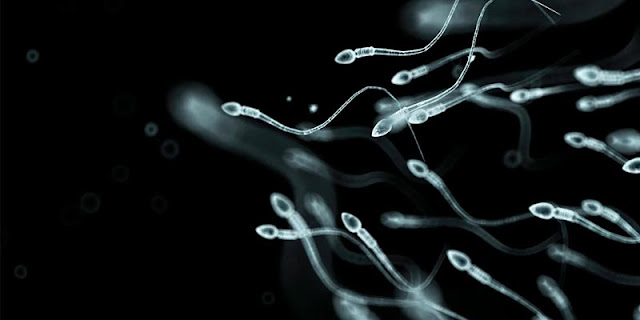In many cases, some couples face difficulty achieving pregnancy even though they have had frequent intercourse without using contraception. About 1/3 of infertility cases are because of male reproductive issues. According to Dr. Niren Rao, urologist and male infertility doctor in Delhi, ‘Male fertility typically depends on certain parameters like the quality and quantity of sperm produced. It will be difficult to have a child if the number of sperm released is low or the quality of the sperm is not that good.
Hormonal imbalance, obstructions preventing sperm movement, genetic abnormalities, chronic health issues, and lifestyle choices are some of the major factors that cause infertility in males. The male reproductive system produces, keeps, and transfers sperm. Sperm and a male sex hormone are made in the two testicles. The testicles are present in the scrotum. When the sperm escapes from the testicles, it goes into the epididymis.
The sperm go from the epididymis into another set of tubes, known as the vas deferens, just before ejaculation. Each vas deferens originates from the epididymis and travels to the pelvis behind the bladder. There, each vas deferens connects the ejaculatory duct to the seminal vesicle. Sperm fuse with fluid from the prostate and seminal vesicles when a man exudes. This forms the semen. The semen then moves through the urethra and out of the penis.
Male fertility depends on the body making normal sperm and delivering them. The sperm travels into the female partner’s vagina. The sperm moves through her cervix into her uterus and into her fallopian tubes. There sperm and egg meet, and fertilization occurs. But, in the case of infertility, the fertilization process does not take place; hence, a doctor’s help becomes important.
Causes of Infertility:
Making mature, healthy sperm that can travel is based on several things. Difficulties can stop cells from growing into sperm. Difficulties can keep the sperm from reaching the egg. Also, the temperature of the scrotum may affect male fertility.
Here are the main causes of male infertility:
- Sperm Disorders
- Varicoceles
- Retrograde Ejaculation
- Immunologic Infertility
- Obstruction
- Hormones
- Medication
- Heavy drinking
- Smoking
- Obesity
- Lifestyle
Ideal candidates who can receive surgical treatments for male infertility treatment in Delhi by Dr. Niren Rao at Dr. Niren Rao’s Urology Clinic:
- Men who have had frequent intercourse without using birth control and are unable to conceive a child after a year or more.
- Men who have erection problems or sperm that is extremely low or non-existent in their ejaculate.
- Men who previously had a vasectomy.
- Men experiencing testicular pain or swelling.
- Men who have had surgery on their groin, testicle, penis, or scrotum.
Types of Infertility and Their Treatment:
Obstructive azoospermia
Azoospermia is the complete deprivation of sperm in the ejaculate. It is diagnosed and is generally confirmed by at least two semantic analyses. Obstructive azoospermia is diagnosed when an obstruction, like a vasectomy, congenital condition, or injury prevents sperm delivery during ejaculation.
Obstructive azoospermia accounts for approximately 40 % of all azoospermia cases. Infertility that is caused due to obstructive azoospermia may be treated efficiently with the help of surgical reconstruction or by recoupment of sperm from the epididymis or testis, followed by procedure like in vitro fertilization (IVF) with intra-cytoplasmic sperm injection.
Vaso-epididymal anastomosis (VAE)
Microsurgical techniques are considered a standard gold treatment for managing obstructive azoospermia, and this surgery is performed in the male reproductive tract. Scrotal or inguinal vasovasostomy may be selected for vasal obstruction following a vasectomy, iatrogenic vessel injury due to inguinal or scrotal surgery such as herniorrhaphy or hydrocelectomy, or solitary vasal obstruction following infection or trauma.
Vasovasostomy is not appropriate for the fixation of multifocal obstruction along the vas deferens. Vasoepididymostomy is designated for epididymal obstruction, secondary epididymal obstruction due to long-standing vasal obstruction, or iatrogenic epididymal obstruction following interventions such as epididymal aspiration. Multifocal epididymal obstruction constrains the level of the anastomosis to be next to all sites of obstruction.
The main implication of vasovasostomy or vasoepididymostomy is to restore fertility in the setting of obstructive azoospermia. Although the use of these procedures has been described for the treatment of postvasectomy pain syndrome, affected men should be offered counselling or conservative methods of pain management prior to consideration of these reconstructive procedures.
Non-obstructive azoospermia
In some cases, males with non-obstructive azoospermia benefit from treatment with certain hormones, persuading sperm back to their semen or increasing the chance of finding sperm during extraction.
Some men may have varicocele that can obstruct the production of sperm. During a microscopic varicocelectomy, the surgeon uses an operating microscope to identify and attach the veins while preserving surrounding structures. With this procedure, up to 40 % of men see sperm return to their semen. Those who fail may opt for sperm extraction.
Percutaneous Epididymal Sperm Aspiration (PESA)
PESA surgical procedure involves the use of the needle and syringe technique for a needle biopsy, and the needle is directly positioned into the male epididymis. This treatment probably gives better results if there is a blockage in the vas deferens and the testis is producing sperm.
Testicular Sperm Aspiration (TESA)
TESA treatment is identical to a needle biopsy, and this treatment involves the placement of a needle connected to a syringe through the skin of the scrotum and then involves direct sucking out the fluid from the testicle.
Micro-TESE (Testicular sperm extraction)
This involves opening the scrotum and taking a large amount of testicular tissue, possibly from several regions of the testicle. Sperms are then restored with the help of a microscope, primarily done under anesthesia. The sperm, once extracted is preserved in suitable temperature, is sent for IVF treatment to fertilize with the female ovum and help achieve pregnancy in females.
To know more about male infertility treatment in Delhi and the treatment cost, book a visit now with Dr. Niren Rao at Dr. Niren Rao’s Urology Clinic.

Comments
Post a Comment